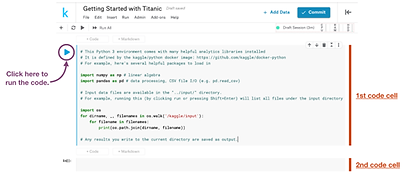
🚀 Kaggle Machine Learning Competition Boot Camp
Kaggle is one of the most popular and novice friendly platforms for machine learning competitions, with a wide range of challenges covering topics such as computer vision, natural language processing, and time series analysis.

Advanced Python Course with Further Math for Machine Learning/AI
Date
TBD
Tutor-Child Ratio
Max 10 Children. Space is limited.
Time
TBD
Class Mode
Online
School Year Group
Year 8 - Year 13
Fee
TBD
Course Highlights

Course Design
Designed by UK Russell Group University Professor, senior software developers with rich AI Industry experience and Open Source AI Library Author and senior software developers with rich AI Industry experience .

AI Learning Platform
Leverage our expertly designed AI Learning Platform for teaching and practices

Course Coverage
This course explores AI and Machine Learning fundamentals using Python, integrating Further Mathematics concepts for a deeper understanding. Students will study data science, mathematical modeling, and problem-solving techniques essential for AI development.

Our Teaching Experts
Taught by UK Russell Group University Professor

Practical Application
Learners will apply Further Math and Python to tackle real-world AI challenges, such as data analysis, predictive modeling, and machine learning algorithms.

Our Expert Experiences
Strong background in AI, specializing in robotics, practical and industrial STEM applications, and competitions, with expertise in machine learning, data science, and AI-driven decision-making

Follow-up Courses
Progress to our Neural Network and Deep Learning Course for AI
Course Demo Video
Our approach to Learn Further Math with Python
Apply Further Math and Machine Learning in Python to solve real problems



Our Coding Platform
Coding Platform with AI Tutor


